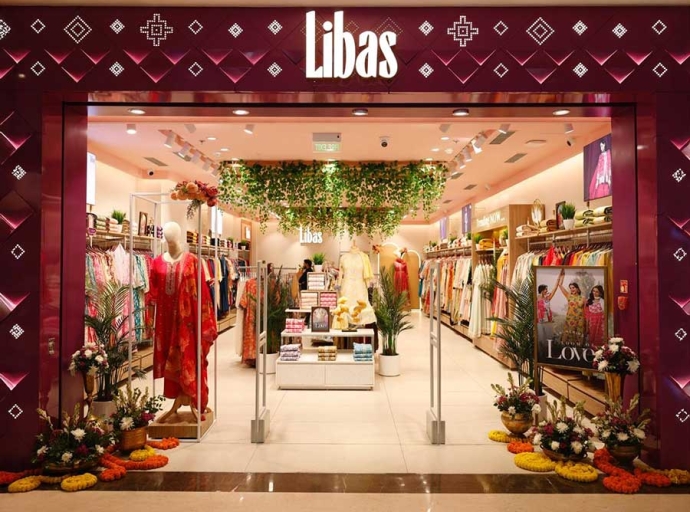12 August 2025, Mumbai
For decades, India’s apparel private labels were dismissed as mere budget fillers, generic names for the price-conscious, playing second fiddle to the glitz of domestic and global brands. But today, in a market full of aspirations, style, and value-seeking behavior, private labels have pulled off a quiet revolution.
From the aisles of hypermarkets to the curated shelves of fashion chains and the algorithm-driven world of e-commerce, private labels are rewriting the rules of the Indian apparel game not as alternatives, but as aspirational, high-margin, and consumer-trusted powerhouses in their own right.
From budget buy to smart choice
The transformation of private labels in India has been both strategic and consumer-driven. Once synonymous with compromise, these brands are now synonymous with smart shopping. With inflation biting into household budgets, Indian consumers are increasingly seeking out options that balance price with design and quality—and private labels are rising to the occasion.
Fashion Guru
“It’s not about improving profitability but filling gaps in demand,” says Devaranjan Iyer, CEO, Lifestyle International. “These are priced as value for money, attracting a lot of consumers who are already stressed in their daily lives.” Lifestyle's private labels now contribute 32 per cent of their total sales, growing at a 15 per cent CAGR.
According to the EY Future Consumer Index, 52 per cent of Indian consumers are switching to private labels. Even more telling is that 70 per cent believe these products meet their needs just as well as national or global brands. In a highly price-sensitive market, 69 per cent of respondents say private labels help them save money—an insight that directly explains their surging appeal.
Watch
Disruptors, not just fillers
As Indian apparel retail becomes more fragmented, serving everyone from luxury buyers to first-time fashion consumers private labels are proving their worth. They are filling market gaps. Whether it’s affordable ethnic wear for men or athleisure for the middle class, private labels are tackling unserved or under-penetrated categories. They are also boosting margins as domestic brands typically offer retailers limited margin flexibility. In contrast, private labels can yield 25-45 per cent higher margins depending on the category.
With exclusive collections and curated lines, private labels build store loyalty. Trent’s Westside is a textbook case where over 99 per cent of its apparel, footwear, and accessory sales come from its own brands. In fact, at a time when consumers can price-compare with a tap, having distinct private labels gives retailers a competitive moat. With in-house control over design, production, and pricing, private labels offer speed, agility, and the ability to align quickly with trends.
Join our community
Growth drivers
Several trends are leading to the rapid expansion of private labels in India. One major reason is with rising inflation and tighter household budgets, consumers are increasingly prioritizing value. The ability of private labels to offer comparable quality at lower price points is a definite draw.
Also, the stigma previously associated with private labels is fading. Consumers now perceive them as "smart shopping" choices that don't compromise on quality or style.
This is further bolstered by retailers' efforts to improve design, quality, and marketing of their own brands. Major organized retailers are heavily investing in and prioritizing their private label portfolios. This is evident in their increased allocation of prime shelf space and marketing efforts.
Visit for more
DMart: Sales of Align Retail (its private brand arm) more than doubled over the past two years to Rs 3,322 crore.
V-Mart: Own brands contribution to apparel sales doubled to 64 per cent in FY25 from 33 per cent two years ago.
Reliance Retail: Its consumer goods arm sales doubled, with private labels forming a substantial part. Reliance Retail's private brands like DNMX, Avaasa, Netplay, and Performax contribute approximately 60 per cent of its revenue, targeting youthwear, casuals, and activewear.
Shoppers Stop: Private labels account for 18 per cent of its apparel sales, with notable growth in newly launched brands like Bandeya (men's ethnic) and Insense (women's western).
Myntra: Drives around 35 per cent of its sales through owned brands like HRX, All About You, Mast & Harbour, and Moda Rapido, often leveraging celebrity endorsements.
Join our group
The expansion of organized retail and booming e-commerce sector provide major platforms for private labels to reach a wider audience. Online marketplaces, in particular, have successfully leveraged private labels to offer extensive assortments and attractive price points. The convenience and price comparison facilities of online platforms further accelerate the adoption of private labels.
Meanwhile retailers are expanding their private label footprint into Tier II, III cities, where local trust and proximity are crucial. This caters to the growing aspirations and disposable incomes in these regions.
Perhaps what works for private labels is that they have greater agility in responding to fashion trends and consumer feedback. With direct control over production, retailers can quickly introduce new collections and adapt designs, ensuring their offerings remain fresh and relevant.
VIEW
Table: Major players and their private labels
|
Retailer/ Platform
|
Private label contribution to overall sales
|
Growth
|
Notes
|
|
Trent (Westside)
|
>99% (Apparel, Footwear, Accessories)
|
Well-established
|
Strong brand loyalty, organic traction
|
|
Reliance Retail
|
~60% (Apparel)
|
Significant growth
|
Focus on youthwear, casuals, activewear
|
|
V-Mart
|
64% (Apparel sales in FY25, doubled in 2 years)
|
Rapid growth
|
Filling gaps in consumer demand
|
|
Lifestyle Intl.
|
32% (Total sales)
|
15% CAGR
|
"Value for money" positioning
|
|
Shoppers Stop
|
18% (Apparel sales)
|
Rising
|
Growth in ethnic and western wear
|
|
Myntra
|
~35% (Sales)
|
Strong growth
|
Leverages celebrity collaborations
|
|
DMart
|
Align Retail sales more than doubled
|
Rapid growth
|
Addresses price-sensitive consumers
|
These numbers highlight the deeper story, that is private labels are no longer side businesses, they are strategic pillars.
DFU Profile
Table: What the consumer is saying (EY Future Consumer Index)
Metric Finding Switching to private labels 52% of Indian consumers Believe private labels meet needs as effectively 70% State private labels help save money 69% Noticed more private label options in stores 74% Saw private label items at eye-level on shelves 70%
A supporting consumer study underlines the "need-satisfying capability at good quality and competitive pricing" as the core motive behind private label purchases. While brand reputation still matters in premium categories, price and product satisfaction are now powerful incentives driving experimentation and loyalty.
A fabric for the future
Thus private labels in India’s apparel sector are only growing stronger. As AI refines customer targeting, as supply chains become more responsive, and as consumer behavior leans ever more toward value-consciousness, private labels are poised to lead the charge.
But this growth also sends a strong signal to traditional manufacturers and legacy brands: innovate or be overshadowed.
With 47 per cent of consumers still open to returning to established brands for superior quality or experience, the door is not closed. It is simply more competitive than ever.
WATCH
In essence, private labels in India are not just catching up, they are defining a new normal. They are the invisible force driving profitability for retailers, empowering consumers with smart choices, and reshaping the very fabric of Indian fashion retail.
And in this new retail narrative, the label on the inside matters just as much as the one on the outside.
LATEST FASHION NEWS





































